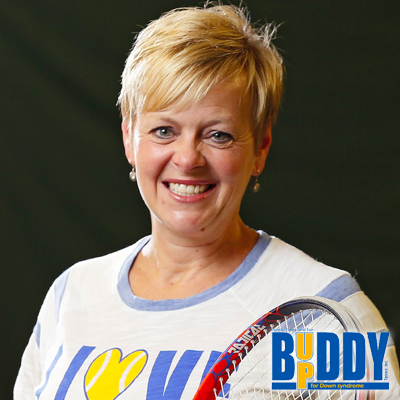Michelle D. Gregg started Code One Compliance in 2014 because she wanted to help food manufacturers with food safety and federal compliance. She creates regulation compliance plans for companies and trains staff on compliance strategies. As a business advisor, she speaks to the impact of regulation on business costs, and how label claims influence the purchasing decisions of target clients.
Michelle has a Masters in Public Health with a focus in food safety, 15 years of federal and state audit experience, and 10 years of experience as a business owner.
She founded and managed Ohio’s first vertically integrated pastured poultry operation, including a grain mill and on-site poultry harvest/processing facility.
She will be attending law school in 2017, focusing on Health Law, and she hopes to use that to advise larger firms in food safety.
What made you decide to start your business?
As an auditor, interaction with clients is sterile. Per law, I am not allowed to advise a company on how to fix their regulation problems while I am auditing them. A typical day during an audit goes like this: 5-6 hours of paperwork review, critical questioning, me telling people how they are wrong, then I never see or talk to them again. I see all the problems an operation has, and am trained to be critical, but I am not allowed to share basic steps on methods to better manage compliance, it is just not allowed. One day I decided that I could have more of an impact on company’s success, and maximize my network capacity if I coach companies on compliance instead of just auditing them. 90% of non-compliances are documentation-related because people go into business to do what brings them personal satisfaction, not necessarily to do paperwork (unless you’re an auditor, then paperwork is your passion). I wanted to make more of a positive impact, while maintaining the stringent knowledge base of a practicing auditor. I decided to branch out and utilize my audit skills by creating and managing compliance plans for companies, freeing them of hours of time to reinvest into their company.
What type of product or service does your business provide?
Code One Compliance engineers strategic regulation portfolios for food companies and manages compliance for most federal regulation programs. We provide strategies that foster a culture of compliance. Clients are typically medium sized, and do not have a full-time Quality Control or QA staff to manage audits. Services include: creating compliance portfolios, educating staff about the law and instructing teams how to comply in their work environment, facilitating mediation when adverse issues exist, and conducting third-party audits.
Our most popular service is pre-audit preparation. It is a mock audit where I review the regulation documentation as I would if I were inspecting the facility. We review missing or unclear items, and I explain the importance and the weight of documentation needed to complete the files. Clients note that this objective review by an outside party better prepares them for success during a real audit.
What are you good at or known for?
I teach company owners, quality control staff, and team members to view regulation portfolios as a living creature, and to avoid viewing it as a static book of documents. I equate regulation management to having a pet, because it is a relatable example. Very little about regulation language and compliance work is “relatable,” in fact, its highly technical language and the expanse of documentation mostly scares or annoys people. Pets however, people can relate to pets and the need to care for an animal. Pets and regulation portfolios require constant attention.
Pets need food and water, regulation plans need daily production entries. Pet owners must think ahead to remove chewing hazards and plan special routes for exercise, and regulation managers must look out for potential ways documentation could be compromised. Pets need supplies and supervision while you are away. Likewise, a regulatory portfolio needs daily updates, hazard analysis, supervision, and expert support for the unexpected.
This simple concept enables staff to recognize the value of their daily interaction with regulation documentation, and the importance of timely updates.
What is the smartest move you’ve made so far as a business owner?
Moving the business to Innovate New Albany. The human resources abound, and the provision of networks prime companies for as much success as they are able to handle.
What is your biggest mistake?
Under-estimating the amount of time it takes to educate clients on Federal Regulations.
If you had one piece of advice to give a new business owner, what would it be?
Seek out good mentors and ask them to share their most teachable moments. There are hundreds of people each with hundreds of experiences, which equates to an exponential number of business-related lessons available for the taking. When asked, business professionals are willing to share their mistakes. Take advantage of learning mistakes from someone else instead of going to the expense of committing them yourself.
What are some of the biggest challenges you face as a business owner?
Managing full-time employment, school, and balancing my need for creative mental space to plan and execute my own company initiatives.
How has your business grown and changed since it first started?
I am more certain of the services I offer and what I refer to other people. I cannot be everything to everyone, and I learned to limit my focus and excel on a smaller platform. My target clients are certified organic processing facilities and farms that are preparing their annual applications to the USDA. Clients are greenhouses in Canada and Colorado, fruit farms in California and Texas, grain and livestock farms in the East, and food trucks in Ohio.
How long have you been a tenant at Innovate New Albany?
16 months. I started here as the Director of a start-up laboratory company. The laboratory owners decided to focus attention on other start-ups in the family of companies, so I took that opportunity to further my own pursuits and maintain my place at Innovate. The lab company left, and I stayed.
What made you decide to become a tenant at Innovate New Albany?
Neil Collins’ hospitality on my initial visit to New Albany was unmatched. He went out of his way on multiple occasions to introduce me to individuals and networks he believes would align with my business or professional goals. I had never been to New Albany prior to that visit. It made a lasting impression, and the more people in New Albany I became acquainted with, the more I wanted to be here. My schedule right now keeps me out of the office a lot, but I always look forward to coming back to Innovate following a long trip.
Being a self-employed business owner, how do you keep yourself focused and motivated?
I keep Starbucks in business. Additionally, I make an effort to stay connected to other business owners and am working to create an intentional community of mentors. Who you let in your circle plays a critical role in one’s decision-making, so I make an effort to surround myself with people who know a lot, have valuable insights in business experience, have a different perspective than I do, are open-minded, and embrace change.
What do you love most about working/living in New Albany?
The people. It’s a diverse blend of educated, professional, wholesome human beings. It really is America’s best suburb.






